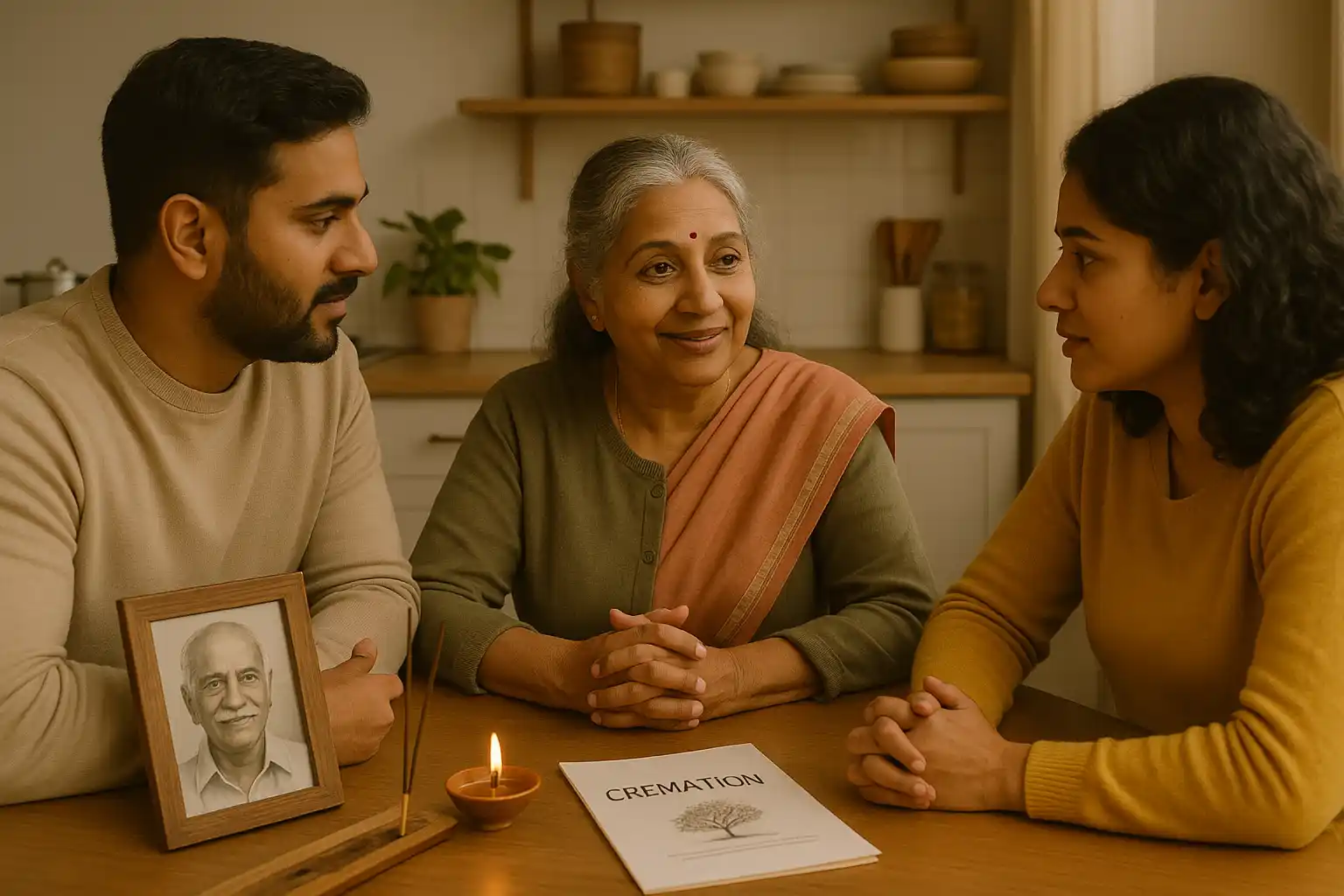End-of-Life Planning Made Simple: Insights from Funeral & Financial Expert
In a recent conversation on The Digital Legacy Podcast, Niki Weiss, founder of ENDevo, sat down with Greg Barnsdale, funeral director, financial planner, and author of Do Not Ignore Your Mortality, to talk about what it means to plan for the end of life with clarity and compassion. It all starts with one truth: planning for death is not giving up. It’s showing up for the people who will one day have to carry on.

About This Blog
Most of us don’t want to talk about death.
We don’t want to think about it, plan for it, or make space for conversations that feel heavy or uncertain. And yet, if you’re reading this, chances are you’ve felt that quiet pull. Maybe after a diagnosis, a loss, or simply a growing awareness that someday, this will matter. Because it always does.
In a recent conversation on The Digital Legacy Podcast, Niki Weiss, founder of ENDevo, sat down with Greg Barnsdale, funeral director, financial planner, and author of Do Not Ignore Your Mortality, to talk about what it means to plan for the end of life with clarity and compassion.
It all starts with one truth: planning for death is not giving up. It’s showing up for the people who will one day have to carry on.
Avoidance is Normal. But It’s Not Helpful.
Greg has worked on both sides of the “mortality coin,” as it were. First as a funeral director, then as a financial advisor. In both roles, he’s seen a pattern: families caught off-guard, overwhelmed, and unsure what to do because no one had “the talk.”
He calls it deathbed estate planning: those panicked moments in the hospital hallway, when loved ones whisper, “Did anyone ask what they wanted?”
This isn't rare. It's common. And it's preventable.
It’s not always fear that keeps us from planning. Sometimes it’s superstition, believing that talking about death might invite it closer. Other times, it’s cultural conditioning. Topics like money, death, and even serious illness are often treated as taboo in Western societies.
But the truth is, death will happen, and it will happen on its own schedule. Waiting to address it doesn’t prevent it. It just makes it harder for the people we love.
Planning Is an Act of Care
Greg shares his own story openly. Two months after publishing his book, he was diagnosed with a brain tumor. It turned out to be benign, but he underwent radiation and faced real uncertainty. What gave him peace? Knowing his affairs were in order.
He had a will, powers of attorney, medical directives, and because of that, his energy could go toward healing; instead of scrambling to put pieces in place under pressure.
End-of-life planning doesn’t just ease legal or financial burdens. It offers emotional relief—for both you and those who love you.
Your Legacy Is More Than Money
One of the most powerful points Greg makes is that end-of-life planning isn’t just about who gets what. It’s about protecting relationships, creating clarity, and reducing conflict.
A thoughtful estate plan:
Minimizes family disputes
Keeps the courts out of your business
Protects your values and wishes
Allows for charitable giving and tax benefits
Strengthens the economy by reducing unclaimed assets
Think of it as relational wealth, not just financial wealth.
Where Digital Meets Deathcare
In today’s world, planning for death includes managing your digital estate: your passwords, online accounts, and personal data. Greg uses a simple binder and pencil to stay organized, but the key is this: make sure someone you trust knows where everything is.
That means:
Keeping login info updated
Assigning a digital executor
Making a list of key assets (bank accounts, subscriptions, social media)
Stating what you want done with your online presence
As more of our lives move online, organizing this aspect of your legacy is becoming just as important as drafting a will.
Not Sure Where to Start? Start Small.
Greg’s book offers practical tools to begin. On his website, you’ll find:
A short Living Legacy Quiz to assess your preparedness
30 curated questions—15 for starters, 15 more advanced—to spark conversation with loved ones
These tools are designed to be approachable. You don’t need to know all the answers. You just need to begin the conversation. They can be found on DoNotIgnoreYourMortality.com.
Death Positivity Isn’t Morbid. It’s Empowering.
The death positive movement, which Greg and Niki both champion, isn’t about celebrating death. It’s about embracing life more fully by removing the fear and shame around its inevitable end.
It’s about saying:
“This is hard, and I’m doing it anyway.”
“I want to make this easier for the people I love.”
“I want to have a say in how I leave this world.”
And sometimes, it’s just about being curious: What would a good death look like—for me?
Let Planning Be a Gift, Not a Burden
You don’t have to do it all at once. You don’t even need to do it perfectly. But every step you take—writing down a password, having a conversation, drafting a will—is a powerful act of love.
And here’s the thing: these aren’t just end-of-life decisions. They’re life decisions.
They help us live more fully, love more clearly, and rest a little easier knowing that when the time comes, we won’t leave chaos behind.
If You’re Ready to Take the First Step:
Take Greg’s quiz or talk to a loved one about just one question from his list. Perhaps check in on your will—do you have one? Is it up to date?
Want to hear more?
Watch the full conversation with Greg Barnsdale on The Digital Legacy Podcast on YouTube. It’s thoughtful, honest, and might just give you the encouragement you’ve been waiting for.
Related Blog
Duis mi velit, auctor vitae leo a, luctus congue dolor. Nullam at velit quis tortor malesuada ultrices vitae vitae lacus. Curabitur tortor purus, tempor in dignissim eget, convallis in lorem.





Comments